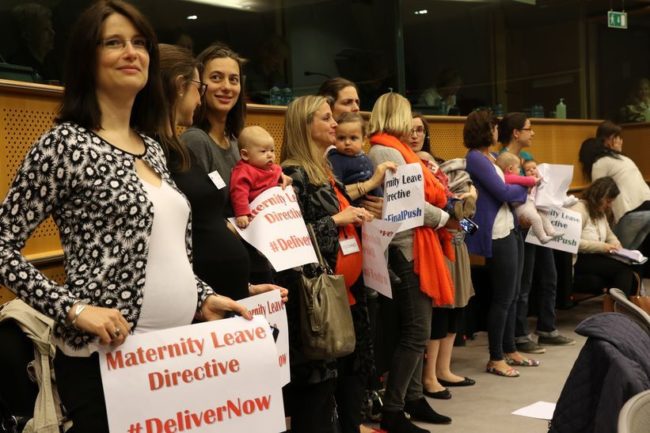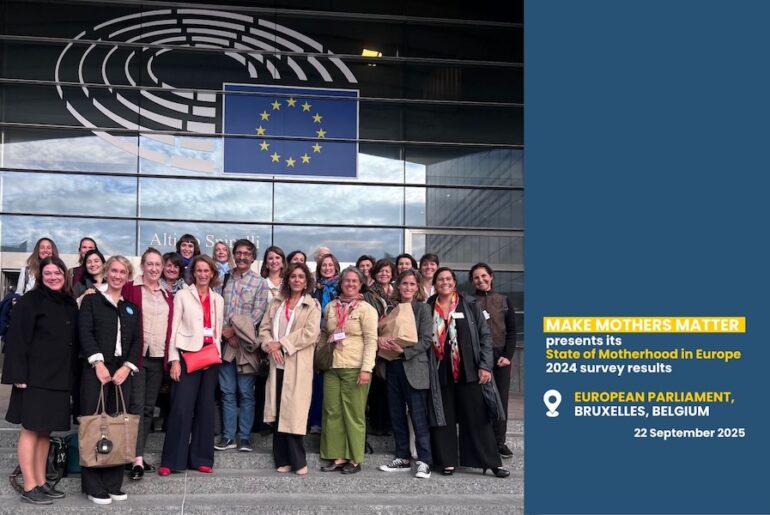Reconciliation of work and family life

Balancing work and family life is a major challenge for European societies. Mothers are not the only ones concerned, but it is mainly them who share their time between paid work, childcare and the care of elderly relatives. This leads to discrimination in hiring, during their professional career with gender pay gaps (16% on average) and negative consequences on retirement (39% gap on average).
The Mother’s Survey (2011) conducted by Make Mothers Matter on what are their priorities in 16 countries and 11 languages collected close to 12000 responses. What they mainly ask for is:
• Time for their family
• Choice on childcare
• Better recognition by society of the importance of care work and motherhood
This is why MMM promotes the adoption of measures that have a direct impact on their daily lives and that seek to improve the balance between work and family life, with a “life cycle approach (39% gender pension gap on average at the EU). Currently, we are advocating for mother’s rights on the proposal for a Directive aimed at “reconciling work and private life for parents and carers” within the framework of the European Pillar of Social rights. It is expected to be adopted in June 2019 after 4 years of negotiations as a replacement of the maternity leave directive proposal from 2008.
MMM supports:
Time
• Promoting flexibility at work: the right to request flexible working conditions, “right to request flexible working” (teleworking, reducing working time, flexible schedules etc), allowing parents and carers to have more time with their families
• Adequately paid maternity leave extended to 16 weeks et EU level
• Paternity leave of 10 days paid at least 80% of the last salary
• Paid Parental leave of 4 months per parent (at least at 80% of the last salary) including 2 transferable months
• Carer’s leave of 5 days per year paid at the level of sick leave
Choice
• Affordable and quality childcare and care services that allow families to choose
• The free choice of parents and caregivers to be able to devote a time of their life to their family responsibilities
Recognition
• The time dedicated to caring for loved ones become “care credits”, so this time is accounted for in calculating retirement pensions to increase its amount
• Validation of skills acquired when performing family work to facilitate the return to the paid labor market as proposed in the Famcompass EU funded project
• Time use surveys to measure time spent on unpaid family work and its contribution to the paid economy as a percentage of the GDP
• The promotion of a “Family Friendly” label for companies and other organisations (EFR Certificate of our member Mas Familia Foundation)





